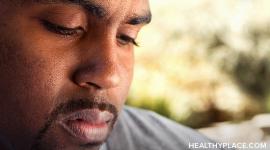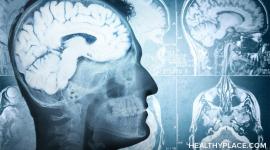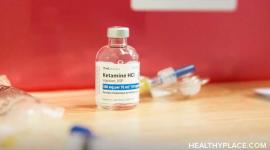What Depression Treatments are Available Today?

Numerous depression treatments are available to anyone living with depressive disorders, whether their illness is mild, moderate, or severe. The following information is an overview of the many depression treatment options available to you. As you learn about these depression treatments, consider your goals for overcoming depression, your personality and what you are likely to respond to, and how depression symptoms are interfering in your life. When you purposefully select treatments for your depression, your chances of steady success increase.
As you’re trying different types of depression treatments, you might create a depression treatment plan. Often, these are official documents created by a doctor or therapist with your involvement. Sometimes, family members are involved in the creation of a treatment plan, too. A depression treatment plan gives you structure and concrete steps to follow. These are helpful for anyone and are a must when depression is severe. Typically, treatment plans address:
- Physical, mental, and spiritual self-care
- Sources of support and how to draw on them
- Healthy lifestyle habits
- Medication schedules (if applicable)
- Therapy schedules (if applicable)
Your depression treatment plan might include any of the following depression treatment options.
List of Depression Treatments Available
Over time, researchers and other mental health professionals have been (and continue to be) dedicated to finding methods that help people with depressive disorders. Several categories have emerged, including:
- Antidepressant medication
- Therapy
- Brain stimulation
- Complementary and alternative treatments
Let’s look at a brief description of each one.
Depression Treatments: Medication
Depression medication helps the brain return to its healthy, balanced state of functioning. It works to restore the balance in the brain’s neurotransmitters like serotonin, norepinephrine, and dopamine.
The most-prescribed antidepressants are the selective serotonin reuptake inhibitors (SSRIs). These prescription medications are SSRIs:
- Prozac (fluoxetine)
- Zoloft (sertraline)
- Paxil (paroxetine)
- Celexa (citalopram)
- Lexapro (escitalopram)
Other categories of antidepressants that are less commonly prescribed are
- Serotonin and norepinephrine reuptake inhibitors (SNRIs)
- Norepinephrine and dopamine reuptake inhibitors (NDRIs)
- Atypical antipsychotics (also called second-generation antipsychotics)
- Tricyclic antidepressants (TCAs)
- Monoamine oxidase inhibitors (MAOIs)
While depression medication can be effective in reducing symptoms, it isn’t a quick fix. Because of the almost staggering variety of options, it can take time for your doctor to discover the right type and dose. Every time you try a new medication, it can take two- to four weeks to tell if it is making a difference. Then, it takes around three months for the full effect.
Often, medication isn’t used as the sole treatment for depression but is combined with other depression treatments for maximum positive effect.
(Editor's note: Explore Ketamine as an antidepressant)
Therapy as a Depression Treatment
Working with a mental health therapist can be extremely beneficial in overcoming depression. You get to explore things that may be causing or perpetuating your illness, and you learn coping skills and strategies that you can use immediately to begin feeling better.
Different types of therapy for depression exist. These have been shown by research studies to be effective for depression:
- Cognitive behavior therapy (CBT): an approach that helps you recognize and change negative thinking patterns as well as build coping skills
- Interpersonal therapy (IPT): involves working on personal problems, especially those involving relationships and other people
- Psychodynamic therapy: the focus is on negative behavior patterns and feelings that arise from the past
- Mindfulness-based cognitive therapy (MBCT): combines CBT with mindfulness, meditation, and deep breathing
Depression Treatment Option: Brain Stimulation
These treatment methods involve using electricity or magnetic fields to either activate or inhibit areas of the brain. They’re done intentionally and safely and are far removed from the shock therapy of nearly a century ago. Types of brain stimulation treatments currently in use for depression treatment include:
- Electroconvulsive therapy (ECT)
- Vagus nerve stimulation (VNS)
- Repetitive transcranial magnetic stimulation (rTMS)
Of these, ECT is the most common.
Alternative and Complementary Treatments
These approaches either offer an alternate type of depression treatment and thus take the place of the traditional treatments listed above, or they are used in conjunction with those traditional treatments, complementing their effectiveness. Some examples of these depression treatment options are:
- Supplements such as vitamins and herbs
- Acupuncture
- Meditation
- Yoga
- Tai Chi
- Massage
- Healthy lifestyle habits
- Behavioral activation (doing more of what works, more rewarding activities)
Depression is a highly individualized illness, which means that each person experiences it uniquely. By extension, depression treatments are unique to each person, too. This is good as it will help you find treatments that fit. The drawback is that there are so many options that finding the right combination is a process.
Don’t give up on treatment. When one thing doesn’t work well for you, try something else. Do be willing, though, to give depression treatment options a chance. Almost every type of treatment requires time to begin working. As it does, you’ll experience success that will build on itself as you climb up out of depression.
APA Reference
Peterson, T.
(2022, January 4). What Depression Treatments are Available Today?, HealthyPlace. Retrieved
on 2026, January 20 from https://www.healthyplace.com/depression/depression-treatment/depression-treatment-options



